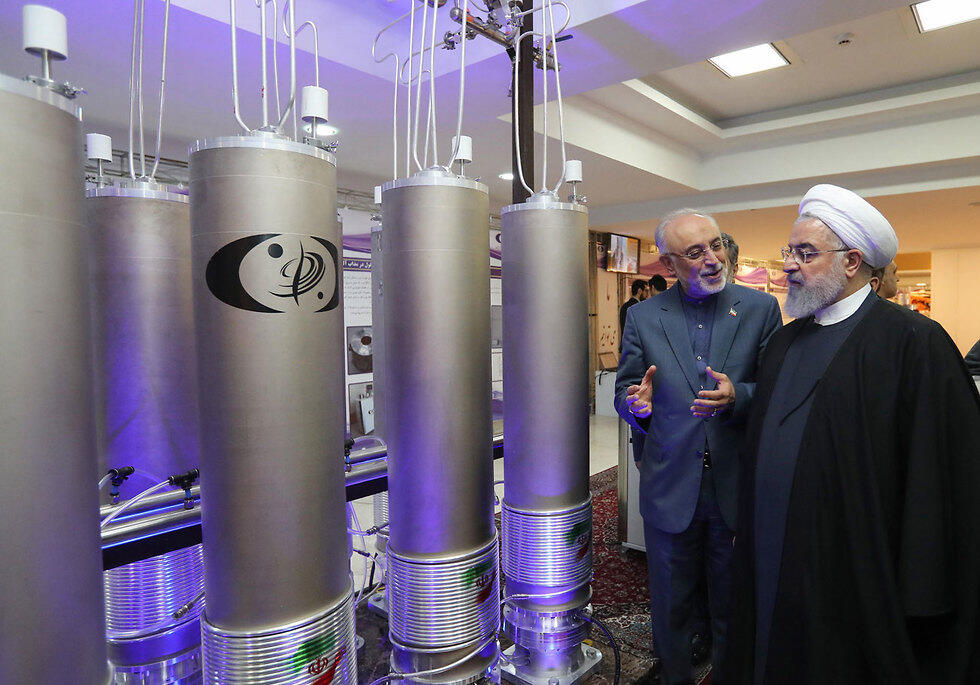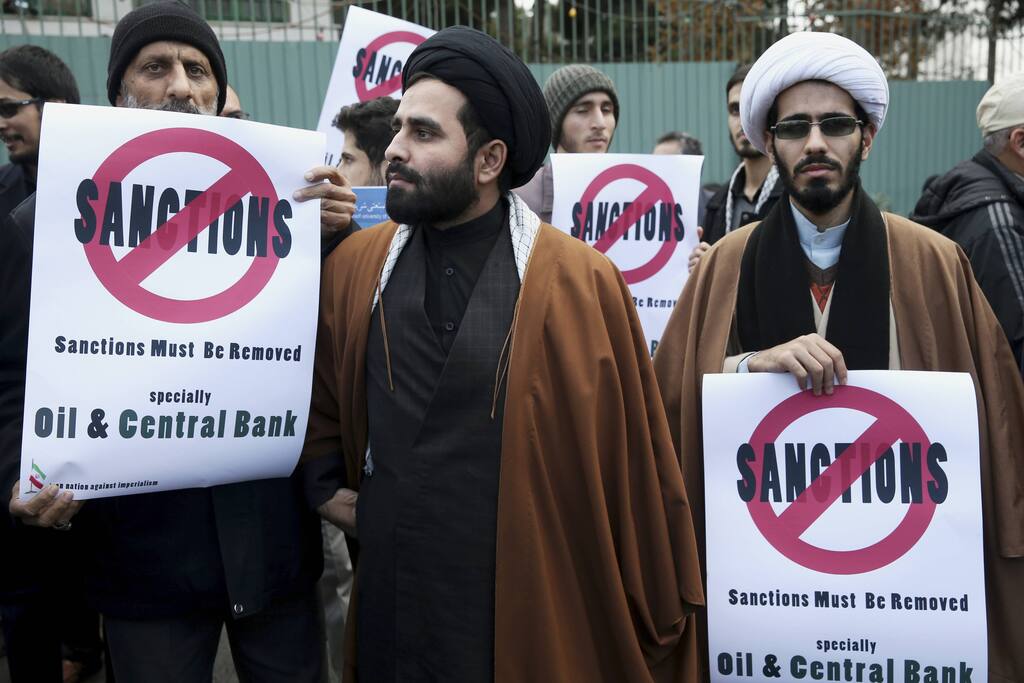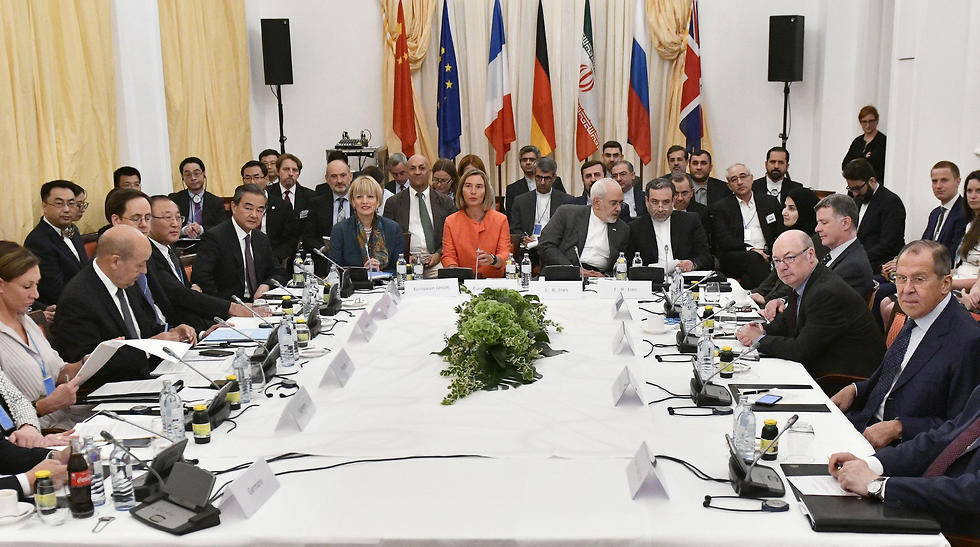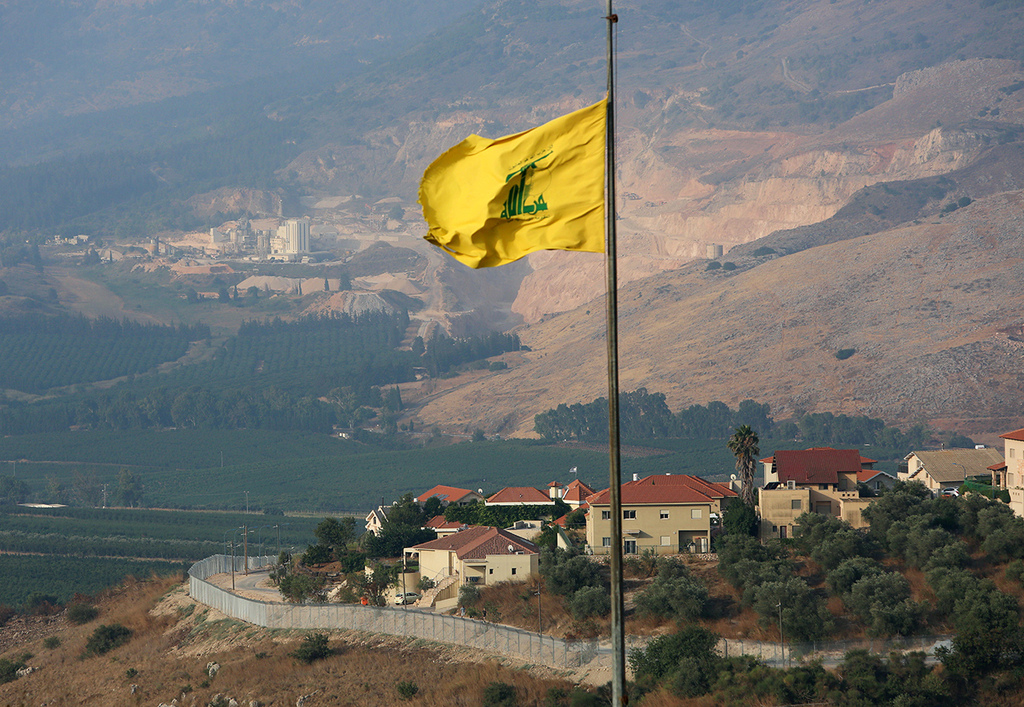Getting your Trinity Audio player ready...
Israel is apparently doing something right when it comes to the Iranian nuclear issue.
For according to a report by the IDF's Military Intelligence Directorate released Tuesday, Iran is still two years away from being able to build a nuclear bomb.
If everything goes smoothly that is.
6 View gallery


Iranian President Hassan Rouhani inspects one of the country's nuclear sites
(Photo: AFP)
The Iranian nuclear project has been going for 40 years, and for the last two decades we have been repeatedly told that the Iranians are a year or two from getting the bomb.
This timeframe is not narrowing, and that is no coincidence. It means that the covert work being done by Israel, Britain, the United States and France is successful, and must be seen through before anyone rushes to threaten Iran with war.
The head of Military Intelligence, Gen. Tamir Hayman, has revealed that the State of Israel has a reasonable amount of breathing room between the failure of diplomacy on Iran's nuclear aspirations and a military response to them.
This is partly due to the 2015 nuclear agreement brokered by former U.S. president Barack Obama, to which President Joe Biden seeks a return after it was abandoned by Donald Trump in 2018.
The annual MI assessment also outlines the deep socio-economic plight faced by the countries surrounding Israel, some of which are defined as enemy states.
The implication ostensibly is that given such domestic woes, there is small chance that one of them will launch a war against Israel this year. In this sense, 2021 will not be too different from 2020.
In fact, it is worth pointing out here to all the experts in Military Intelligence that Arab countries have not waged war on Israel for several decades.
The 2006 Second Lebanon War was the result of Hezbollah underestimating Israel's response to the abduction of its troops on the Lebanon border.
Even so, relying on a country's precarious economic situation as a deterrent is problematic, since a national economy is like a wheel – sometimes you are at the bottom and sometimes you are at the top.
Iran has been under various sanctions since 2000 and still there are not thousands taking to the streets. Syria is in permanent state of bankruptcy and the regime should have collapsed long ago.
Moreover, Military Intelligence also states that in the past year, Hezbollah - like the Iranians and Hamas - has actually continued to strengthen, devoting a portion of its funds to doing so.
6 View gallery


Iranian students call for an end to international sanctions against the country ahead of the 2015 nuclear deal
(Photo: AP)
Therefore, the only relevant conclusion in the document presented by Military Intelligence regarding the chances of war is that there is no guarantee that the situation will not deteriorate unexpectedly in 2021.
No one foresaw war in 2006 either, and the claim that Hezbollah will try to create limited confrontations that do not actually cross the threshold of war is a meaningless assumption.
It is impossible to predict today whether bringing down an Israeli aircraft would lead to confrontation, as almost happened recently.
All that the IDF can realistically do is be in a state of readiness for the potential eruption of an unforeseen confrontation.
Military Intelligence places great importance on the Abraham Accords signed by Israel with the UAE and Bahrain and their impact on Israel's strategic status.
While this is true today, one should keep in mind that Israel used to have close ties with Iran, Turkey and various African nations. In the Middle East, regimes and interests are constantly in flux.
6 View gallery


U.S. President Joe Biden delivering his first major foreign policy speech at the State Department last week
(Photo: AFP)
Even the Biden administration is a mystery that could greatly change the course of events in the region. Biden's first foreign policy speech as president did not mention Israel at all.
But although Israel has not faced an external existential threat for years, there is an internal, socio-economic threat that is no less dangerous.
And there is no domestic Military Intelligence chief to sound the alarm.




